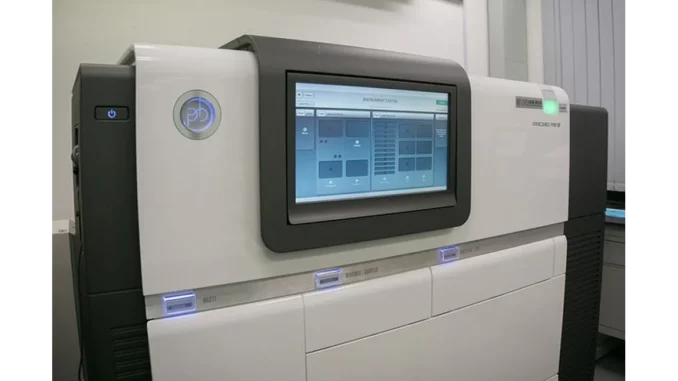
In the bustling heart of London, amidst the historical elegance of Carlton Gardens, a pivotal dialogue is unfolding that may well define the future of the United Kingdom’s healthcare and data security sectors. Recently, the opportunity presented itself to engage with Dr. Emily Carter, a distinguished genomic researcher from the University of Cambridge. Our discussion revolved around the contentious involvement of Chinese enterprises within the UK’s genomics sector—an issue that has sparked concern among senior Tory members and echoed through the scientific community. The primary concern is the safeguarding of sensitive health data from potential foreign exploitation.
Dr. Carter, renowned for her trailblazing contributions to genetic research, welcomed me into her modest yet vibrant office. The room was a testament to her achievements, with accolades and scientific journals adorning the walls. Her passion was unmistakable as she spoke about her field, but her expression grew serious as we broached the topic of recent political developments. “Genomics transcends the mere understanding of life’s blueprint,” she emphasised, her gestures animated with conviction, “it’s about harnessing that understanding to revolutionise patient care through personalised medicine. The UK has led the way in this arena, but leadership brings with it significant responsibilities.”
The core of the debate centres on the potential risks of allowing foreign companies, particularly those from China, access to genomic data. This data is not only personal but holds significant national importance, and there are fears it could be utilised in ways that may not align with the UK’s strategic interests. “The issue extends beyond data privacy,” Dr. Carter clarified. “It concerns maintaining control over our healthcare advancements. If another nation were to dominate the genomics supply chain and technological infrastructure, it could have profound implications for our healthcare sovereignty.”
The discourse gained momentum following a letter from shadow cabinet office minister John Glen, urging the government to reconsider the involvement of entities such as BGI Group and MGI Tech. These companies, despite asserting their independence from the Chinese state, have attracted scrutiny due to China’s strict data-sharing mandates. Dr. Carter acknowledged the valid concerns, drawing parallels to past controversies involving companies like Huawei and TikTok, where commercial and state interests appeared intertwined. “In genomics, where the stakes involve not only data but also potential healthcare breakthroughs, intense scrutiny is warranted,” she said.
Dr. Carter’s enthusiasm for the scientific potential of genomics was infectious. “Envision treatments tailored to individual genetic profiles, minimising side effects and enhancing efficacy,” she mused. “This isn’t a distant dream—it’s within our reach. However, realising this potential requires a robust framework of trust and security around our data.” The government’s current approach, articulated by Cabinet Office minister Abena Oppong-Asare, involves handling exclusions on a “case-by-case basis,” ensuring that any debarment decisions are preceded by thorough investigations. This measured approach seeks to balance international collaboration with the imperative of protecting national interests.
Dr. Carter expressed cautious optimism regarding this strategy. “A blanket ban could hinder innovation and collaboration,” she noted, “but a strategic and informed approach might enable us to harness global partnerships while safeguarding our interests.” As our conversation neared its end, Dr. Carter highlighted the necessity of transparency and public engagement in these decisions. “People need to be informed about how their data is being used and the measures in place to protect it. This isn’t solely a matter for politicians and scientists—it’s about the future of healthcare for everyone.”
Leaving our discussion, I found myself with a richer understanding of the intricate balance the UK must maintain in its genomic pursuits. The journey ahead demands not only the protection of data but also the cultivation of an environment where scientific progress and national security can coexist harmoniously. As the global community observes, the decisions made today will undoubtedly influence the future trajectory of genomics, not just in Britain but worldwide. My conversation with Dr. Carter underscored the complexity and significance of these challenges, serving as a poignant reminder of the power and responsibility inherent in scientific advancement.


Be the first to comment